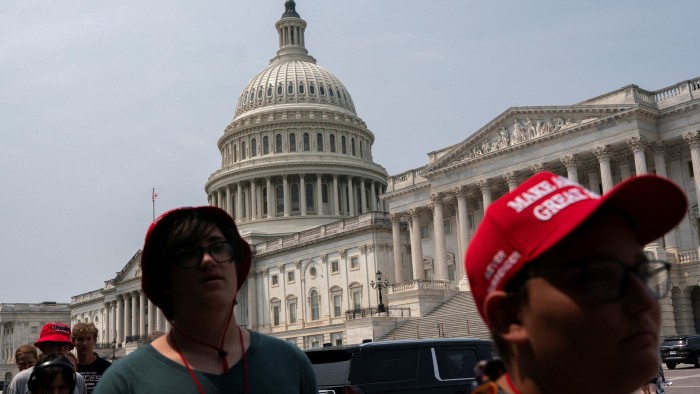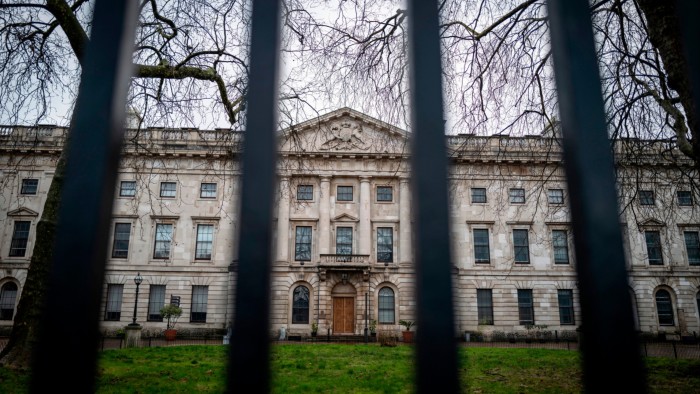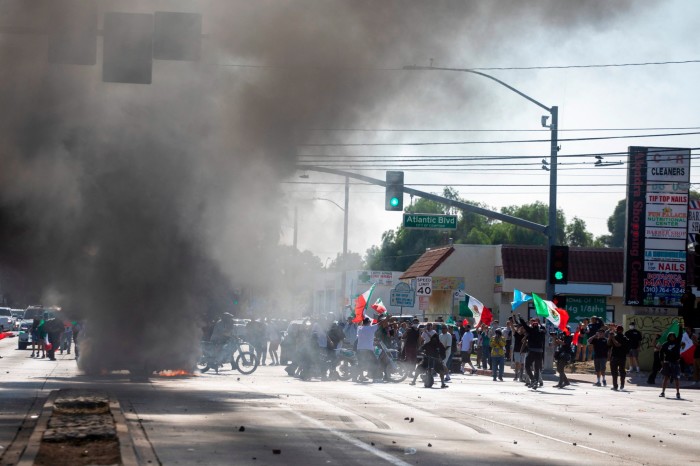Trump’s immigration restrictions threaten restaurant labour shortage

US restaurants are bracing for staff shortages as the Trump administration’s immigration crackdown threatens to squeeze an already-tight labour market.
Restaurant operators nationwide said they were coming under greater scrutiny as immigration officials conduct enforcement sweeps to verify the employment status of workers, including visits to more than a hundred Washington businesses in May.
This “very public” enforcement by immigration officials, including the presence of armed officers at recent site visits in Washington, had left some people afraid to come to work, said Tony Foreman, the owner of five restaurants in nearby Maryland, including The Duchess, which opened in Baltimore late last year.
Foreman said that an imminent labour shortage was “absolutely going to put wage pressure on” the hospitality industry, and added that some restaurateurs might struggle to find enough qualified staff.
“There’s no surge of people wanting to take up these jobs,” he said.
More than a fifth of restaurant workers in the US were born outside the country, according to estimates from the National Restaurant Association. Most of these people are legally authorised to work in the US, but the restaurant sector, which has not yet recovered to pre-pandemic employment levels — also employs an estimated 1mn undocumented immigrants, according to the Center for Migration Studies.
Restaurateurs say that new restrictions on immigration, including the revocation of the legal status of thousands of workers and a growing climate of fear among both authorised and unauthorised immigrants, have exacerbated long-standing hiring challenges.
The Supreme Court last month allowed the White House to revoke the temporary protected status that then-president Joe Biden granted to up to 350,000 Venezuelan migrants fleeing unrest and economic crisis in 2023. Protections for a further 250,000, granted in 2021, expire in September.
Jacob Monty, a Texas-based immigration lawyer who advises chain restaurants, said many of his clients were struggling to replace previously-authorised workers after the Trump administration voided their status.
Almost a fifth of Venezuelans who were granted temporary protected status since 2021 work in the hospitality and recreation industry, according to analysis of the American Community Survey by Michael Clemens, an economics professor at George Mason University. They face the loss of their protected status.
Monty added: “It’s going to be a hectic summer with employers trying to retain their current staffing levels in the face of losing so many employees.”
The pipeline of arrivals seeking work has also slowed. Trump on Wednesday banned nationals from 12 countries from entering the US in a sharp expansion of his anti-immigrant policies. He also partially restricted entry for citizens of seven further countries, including Venezuela.

“My fear is that [the administration] would suspend all legal routes into the US,” said Irena Stein, founder of Alma Cocina Latina, a Venezuelan restaurant in Baltimore which has sponsored 10 “extraordinary ability” O-1 visas for highly-skilled chefs since it opened in 2015.
“A Venezuelan restaurant without Venezuelans simply doesn’t work,” said Stein. “We would have to close if we couldn’t hire immigrants.”
Restaurants are a common focus for immigration enforcement visits due to the industry’s reliance on migrant labour, according to Ernesto Castañeda, director of the Immigration Lab at American University. US Immigration and Customs Enforcement agents can also legally enter the public areas of a restaurant without permission, which makes them “easy targets”.
Recent displays of force had made it harder for restaurant owners to recruit staff, said Castañeda, because people — undocumented or not — “may prefer to work in an industry where there’s less scrutiny”.
Rating agency Fitch lowered its outlook for the US restaurant sector from “neutral” to “deteriorating” in May. Jose Luis Rivas, a senior director at Fitch, said the industry was facing “simultaneous inflationary pressures” from higher tariffs and a tighter labour market, but would struggle to pass these extra costs on to highly price-sensitive diners.

“You’re talking about labour shortages that can cause business failure,” said Jeff Barta, a director at consultancy AlixPartners. From slower service times to reduced menu offerings, Barta said sustained understaffing was “a recipe for poor customer experience”.
“None of our restaurants can afford to lose even one staff member,” said Shawn Townsend, president of the Restaurant Association of Metropolitan Washington. He added that restaurants in his network were preparing for audits of work eligibility documents, known as I-9s, and getting staff ready for unexpected immigration enforcement visits.
Restaurant operators, particularly those based in immigrant communities, also warned that people were increasingly staying home out of fear of being targeted by ICE agents, which could exacerbate a slowdown in the industry with consumers already curbing their spending amid heightened economic uncertainty.
“It has taken a big toll on our business,” said Teddy Vazquez Solis, the owner of Teddy’s Red Tacos, a chain of restaurants and food trucks in Los Angeles. “People are afraid to come out and spend their money.”






